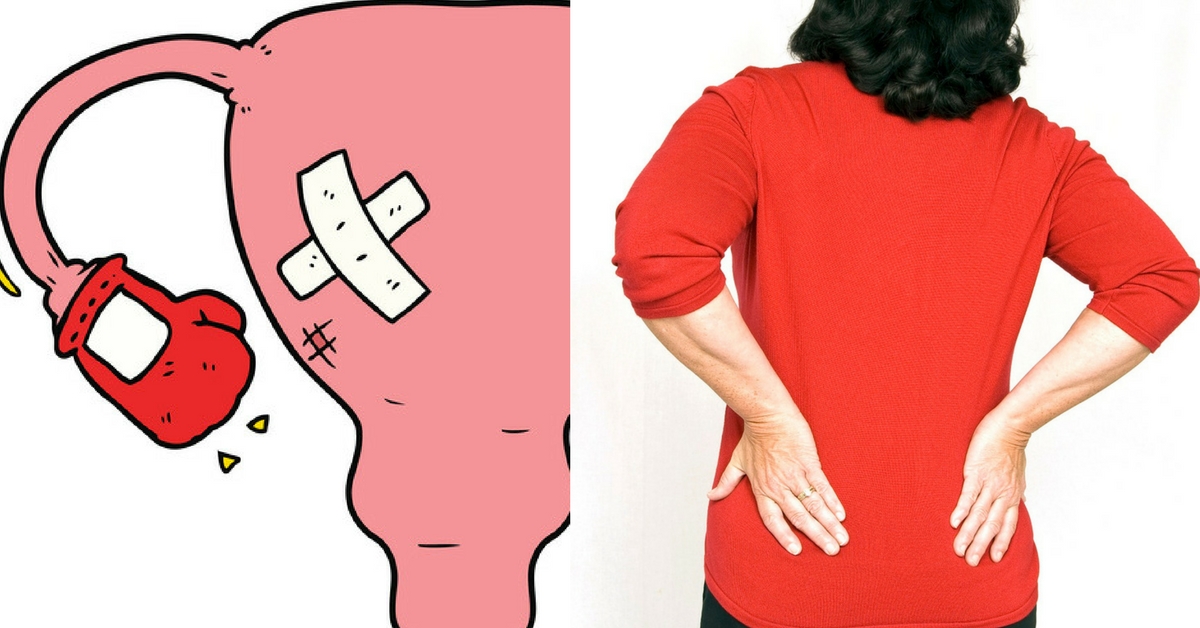Endometriosis is a very common condition among women. In the US alone, there are about 7 million women who have been diagnosed with endometriosis. Although some percentage of endometriosis patients do not feel any pain because of the condition, it may cause severe pain in many. Most endometriosis patients deal with pelvic pain and painful sexual intercourse. However, only a minor percentage of women with the condition develop any back pain. In some cases, women do develop spinal pain, which can radiate along the vertebrae in severe cases. Let us look into this in more detail.

How Does the Condition Cause Pain?
Endometriosis is caused by endometrial tissue that has implanted itself and has begun to grow in unusual places in and around the reproductive system. The tissue is normally found in the uterus. It thickens and prepares itself for implantation of a fertilized egg. When no fertilization occurs, the tissue simply sloughs off during the menstrual cycle, and leaves the body. But, it is theorized that sometimes the tissue that has broken off, instead of leaving the body, moves to different parts of the body and implants itself. The most common regions where it implants are the ovaries, Fallopian tubes, bowel, bladder, and even the rectum.
The tissue’s thickening and breakdown is completely controlled by hormones. But, once it has attached itself to other organs, it may not be possible for the tissue to leave the body even after it breaks down. This leads to various problems such as cysts, and scar tissue. These are the main causes of pain. This pain is mostly concentrated around the pelvic region because the endometrial cells cannot easily travel to other parts of the body.
In rare cases, the endometrial cells find themselves on the lower part of the spinal canal or vertebrae. There, they cause severe pain to the patients. The pain can even radiate across the back if the cell growth impinges the nerve network leaving the spine.

Treatment
There are two primary treatments available for back pain resulting from endometriosis. One is hormonal therapy and the other is surgery.
The hormonal therapy is essentially a birth control procedure. Because growth is stimulated and controlled by pregnancy hormones, medication is given to inhibit such hormones. Without the hormones, the endometrial cells cannot thicken, no matter where they are. For obvious reasons, such treatment should be avoided during pregnancy or when trying to get pregnant. Women nearing menopause are advised against seeking any hormonal therapy, because menopause can remedy endometriosis.
Surgery is an invasive and risky option because the spinal cord is involved. The spinal endometriosis surgery is slightly more complicated than a simple endometriosis surgery to the pelvic region. However, if severe pain or neurological symptoms are being exhibited, then surgery might be the preferred way to go. It is important to discuss the risk, and cost of this invasive spinal surgery with an expert before pursuing it.
SOURCE: http://backpainsolutionsonline.com/announcements-and-releases/backpain/lower-back-pain-causes/spinal-endometriosis-rare-cause-of-back-pain-in-women





